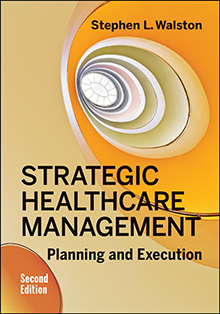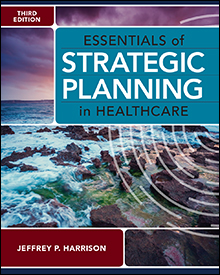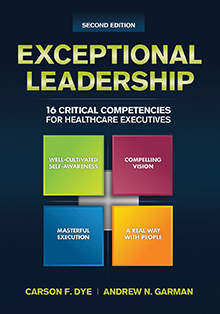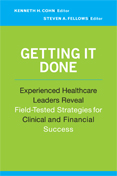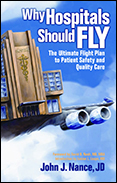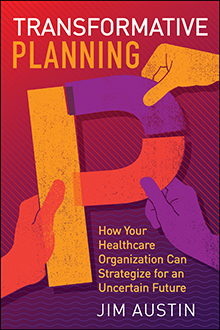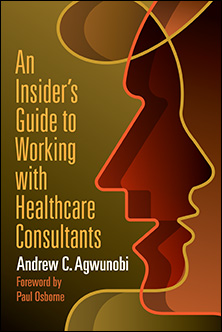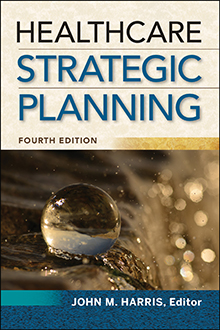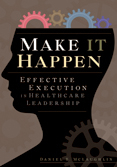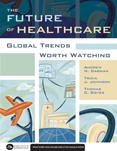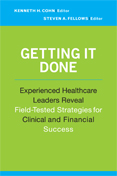
Getting It Done: Experienced Healthcare Leaders Reveal Field-Tested Strategies for Clinical and Financial Success
Kenneth H. Cohn, MD Steven A. Fellows, LFACHE
Book Description
Regardless of the outcome of national healthcare reform legislation, pressure is mounting on healthcare professionals to provide more cost-effective, coordinated care.
Nothing is more valuable than experience. Overcoming a challenge builds skills, knowledge, and confidence.
This book shares the hard-earned lessons of healthcare leaders who removed roadblocks to clinical and financial excellence. Each chapter describes a real-life dilemma, distills the lessons learned, and provides step-by-step guidance. Use the strategies presented in this book to tackle similar challenges in your organization with greater speed, confidence, and success.
Physician engagement and collaboration are the common themes of these stories. Administrators, physicians, and nurses provide firsthand accounts of how they worked together to overcome obstacles and transform care for their communities.
Tap the wisdom and experience of healthcare leaders who:
- Accelerated physician adoption of electronic health records
- Cut mortality from sepsis
- Transformed the culture of the operating room
- Developed a successful ED-call pay program
- Cut costs using strategic supply cost management
What Readers Are Saying
The editors have compiled an impressive set of insightful chapters by leading experts throughout the nation. The [chapter] authors do an excellent job of making the theoretical practical and the practical implementable."
-C. Duane Dauner, FACHE, President, California Health Association (from the Foreword)
Healthcare leaders face so many challenges; it can be overwhelming. The real-life examples and action-oriented recommendations in this book spell out exactly how our innovators and role models get the job done.
-Kathleen Goonan, MD, Executive Director, Massachusetts General Hospital Center for Performance Excellence
Twenty-first century healthcare leaders need to move beyond strategies and tactics that have worked in the past. They need to adapt to changes using new skills that include actively listening and learning from one another. Reading the stories in this book gives me hope that it will happen during my lifetime. These stories profile leaders who have adapted to create new and innovative models and structures.
-Michele M. Molden, FACHE, Executive Vice President and Chief Transformation Officer, Piedmont Healthcare
Sometimes it feels like we still live in a wild-west habitat of hospital–physician relations. This book showcases stories and insights that can help any healthcare organization depersonalize differences to improve care. Each chapter offers key insights that help us move closer to relationships that best help those we serve—our patients and families.
-Ruth W. Brinkley, FACHE, President/CEO Carondelet Health Network, and West Ministry Market Leader, Ascension Health
Chapter 14 is a very successful story in a situation most seasoned healthcare administrators have been a part of in their careers. The distinguishing characteristic that makes this chapter different from other books on this subject is that the sidebars read like well-thought-out ‘recipes for success’ and allow the reader immediate access to these tools and techniques for their own situations. The stakes are very high when the knowledge and skills of all team members are not optimal, and fortunately, this situation had a ‘burning platform’ that did not cause harm to the patients. The information in this chapter about the cost of staff and physician turnover and the correlation between quality and staff turnover is well written.
-Erin Yale Horwitz, FACHE, Administrator, Diagnostic Imaging and Professional Services Children's Hospital of Wisconsin
As a surgeon, department chair emeritus, and board member, I have lived through the challenges that Dr. Cohn describes in his book. Collaboration sounds simple but is rarely easy. Dr. Cohn’s book, as usual, is clear, succinct, and on point. I hope this book will help to improve honest interaction among physicians, administrators, nurses, and board members and ultimately promote improved care for our communities.
-Dean Milos, MD, practicing surgeon and board member
Finally, a book that tells the truth about how the lack of collaboration undermines our nation’s medical centers and how true collaboration, as opposed to disguised control, can save us time, expense, and needless lives lost. Implementing just one of the strategies described in this book can make a tremendous difference for physicians, facilities, and most important, patients.
-Mark F. Weiss, healthcare attorney, Advisory Law Group
This book has the best chance of any for improving how hospitals operate. For the first time, physicians and hospital leaders have a collaborative, evidence-based approach to delivering greater care at lower cost. From the administrative level to the way care is delivered, this book enables hospitals to make a huge cultural shift toward consistently better care. The authors have created and tested actionable clinical and administrative strategies and procedures drawn directly from the experience research of medical and healthcare leaders from across the country. As a former Wall Street Journal reporter who covered healthcare and who has spent the past eight years researching and crafting collaborative strategies and communication, I believe the book is so practical and well researched that it can unite hospitals around a common vision and, more important, collective action. -Kare Anderson, Leader, Collaborative Strategies, Center for the Edge, Deloitte
Actions speak louder than words, and Getting It Done is all about taking action. Cohn and Fellows demonstrate impact through action by providing thought-provoking, real-life examples of what our health system could be if we effectively collaborated and aligned stakeholder incentives to meet our shared goals. With the noise level on health reform rapidly on the rise, this book could not have been timelier.
-Gautam Gulati, MD, MBA, MPH, founder and chief idea experimenter, Gulati Group; adjunct professor of medical innovation and entrepreneurship, Johns Hopkins Carey Business School; Senior Vice President, Science and Medicine, Digitas Health
The practical insights in Getting It Done from healthcare leaders on the frontlines are quite instructive. As the landscape continues to shift, this guide will be a key part of many a healthcare executive’s toolkit.
-David Harlow, JD, MPH, Principal, The Harlow Group LLC
To improve performance and safety is a goal shared by all teams in all hospitals. However, the human element is often the elephant in the room, which is invisible despite being in plain sight of all involved in dysfunctional hospital units. Dysfunction may start from a single individual, but it spreads faster than C. difficile, rapidly crippling the normal function and risking patient well-being and safety. A model intervention, developed by an experienced team, that can be rapidly implemented is a boon to hospital care, administration, and most important, patient safety.”
-Jimmie C. Holland, MD, Wayne E. Chapman Chair in Psychiatric Oncology and attending psychiatrist, Memorial Sloan-Kettering Cancer Center
Getting It Done provides some applicable real-world scenarios of what happens on the frontlines. While technology may help advance the capability of providing healthcare, it does not negate the use of old-fashioned but affirmative positive communication and collaboration.
-Colleen Stukenberg, MSN, RN, CMSRN, CCDS, Clinical Documentation Management Professional, FHN Memorial Hospital
Improving documentation often makes physicians angry and defensive. The authors make a compelling case for why improving documentation impacts patient care, quality, and safety and enhances revenue for physicians and hospitals.
-Jennifer Daley, MD, Executive Vice President and Chief Operating Officer, Umass Memorial Medical Center
The dance of the blind reflex prevents participants from seeing the enabling role they play in the conditions they deplore. With their carefully edited cases and analyses, Dr. Cohn and Mr. Fellows have skillfully addressed the elephant in the room—subjects that everyone else tiptoes around. I look forward to making their book available to my second-year graduate students in my capstone course.
-Leonard H. Friedman, PhD, FACHE, Professor and Director, Department of Health Services, Management, and Leadership, The George Washington University





-b084e1dd.jpg?w=160)


